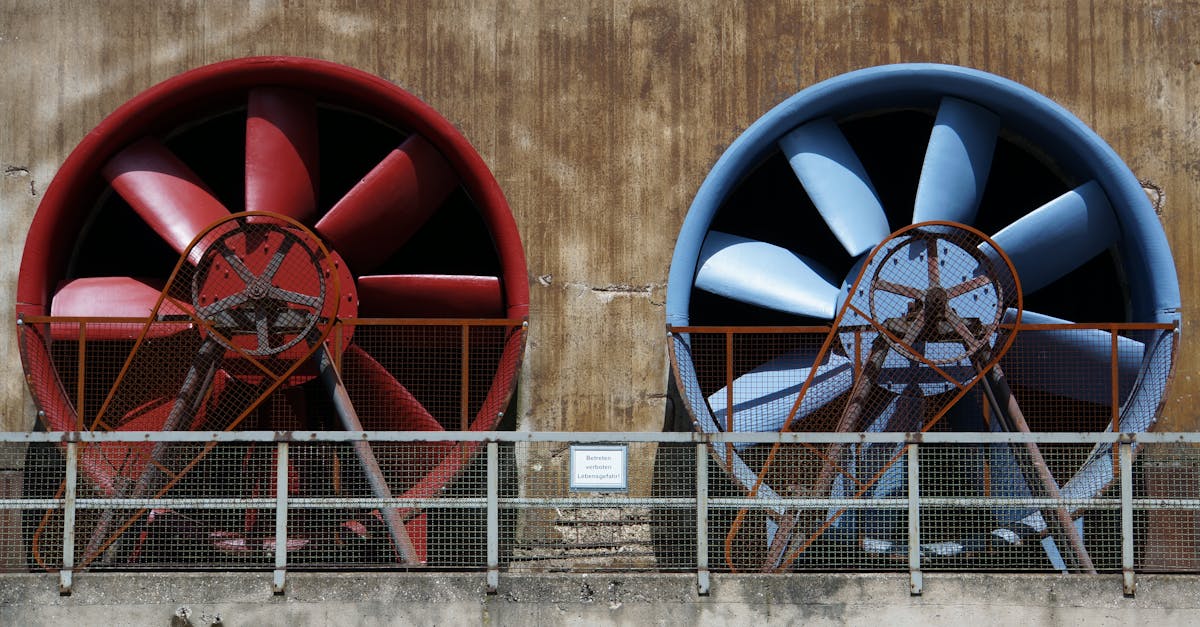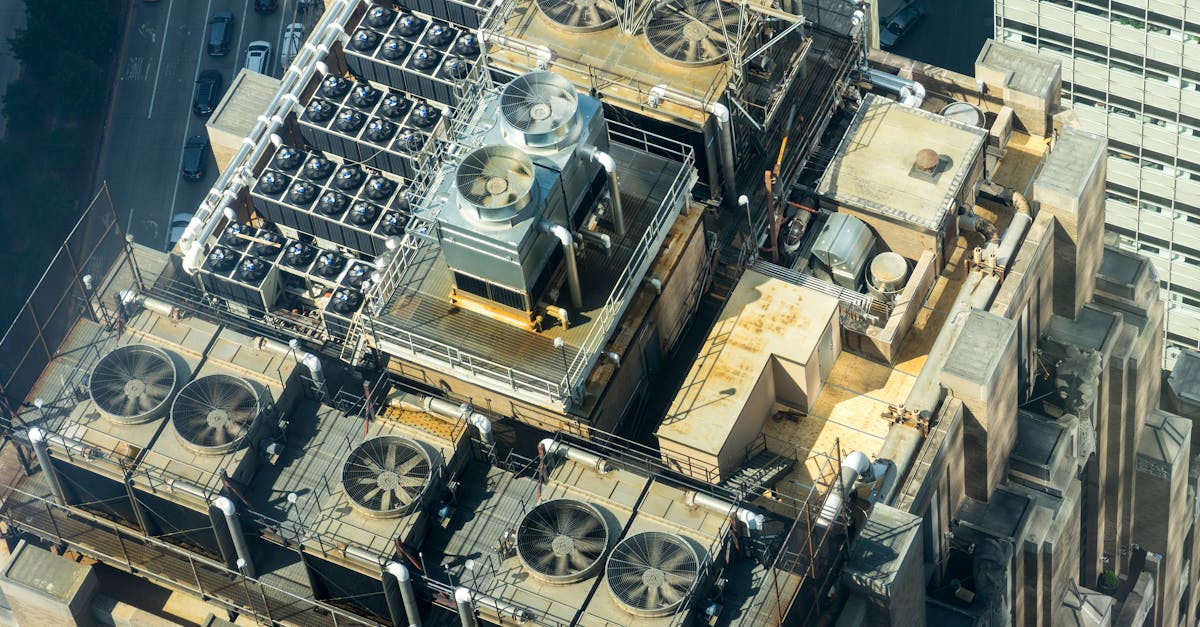
Table Of Contents
Energy Efficiency in HVAC Systems
Energy efficiency plays a crucial role in the performance of HVAC systems, as it directly affects operational costs and environmental impact. Efficient systems not only provide comfort but also consume less energy to achieve desired temperatures and humidity levels. Technologies such as variable speed motors, advanced thermostats, and high-efficiency filters contribute significantly to improved energy utilisation. These enhancements help reduce overall energy consumption, leading to lower utility bills and a smaller carbon footprint.
For businesses seeking to optimise their HVAC systems, it's essential to consider professional assistance. Engaging with Commercial HVAC Services West Midlands can provide tailored solutions that enhance efficiency and indoor air quality. Expert advice and installation of energy-efficient equipment ensure that systems operate at their best. Regular maintenance and upgrades can lead to substantial long-term savings and increased comfort for occupants.
How to Choose Energy-Efficient Products
When selecting energy-efficient products for heating, ventilation, and air conditioning, it is vital to consider the energy ratings of the units. Look for appliances that display a high Energy Efficiency Ratio (EER) or Seasonal Energy Efficiency Ratio (SEER) for cooling systems. These ratings indicate how effectively these units convert energy into heating or cooling. Investing in products that are certified by recognised energy efficiency programmes can lead to significant reductions in energy consumption and lower utility bills in the long run.
Additionally, engaging with professional services can enhance your decision-making process. Companies providing Commercial HVAC Services West Midlands often have in-depth knowledge of the latest energy-efficient technologies available in the market. They can guide you in selecting the right systems tailored to your specific needs while ensuring compliance with local regulations regarding energy efficiency. This expertise is crucial for optimising performance and comfort in commercial spaces.
Common HVAC Terminology
Understanding common HVAC terminology is essential for both industry professionals and consumers. Terms like "SEER," which stands for Seasonal Energy Efficiency Ratio, indicate the efficiency of air conditioning units. Knowing the meaning of "BTU" or British Thermal Unit, which measures heating and cooling performance, can help in assessing the power of HVAC systems. Additionally, "ductwork" refers to the system of ducts that transport heated or cooled air throughout a building, playing a crucial role in overall efficiency and comfort.
For those looking to explore professional assistance, the phrase "Commercial HVAC Services Sutton Coldfield, West Midlands" underscores the local availability of expertise in managing these systems. Familiarity with terms such as "heat exchanger" or "variable air volume" can empower consumers to make informed choices about their indoor climate systems. Understanding these concepts creates a foundation for better communication with technicians and service providers, ensuring that specific needs are clearly articulated.
Glossary of Essential HVAC Terms
Understanding common HVAC terminology is crucial for navigating the complexities of heating, ventilation, and air conditioning systems. Terms like “SEER” (Seasonal Energy Efficiency Ratio) represent the efficiency of cooling systems, while “AFUE” (Annual Fuel Utilisation Efficiency) is used to measure the efficiency of heating systems. Familiarity with these acronyms helps homeowners and businesses make informed decisions regarding energy-efficient solutions.
For those seeking professional assistance, companies offering Commercial HVAC Services West Midlands can provide valuable insights into equipment selection and system optimisation. This expertise not only enhances indoor comfort but also promotes energy conservation. Being aware of essential terms like “ductwork”, “thermostat”, and “ventilation rates” aids in effective communication with HVAC professionals.
The Impact of HVAC on Indoor Comfort
Effective HVAC systems play a crucial role in maintaining indoor comfort by regulating temperature and air quality. Proper heating and cooling not only create a pleasant environment but also contribute to the overall well-being of occupants. Effective systems can ensure consistent temperatures throughout a building, which is essential for both residential and commercial spaces. With the right setup, issues such as drafts or hot spots become a thing of the past, enhancing comfort significantly.
In commercial settings, professional HVAC services are vital for optimal performance. Commercial HVAC Services Coventry, West Midlands, offer tailored solutions that address the unique needs of businesses. These services ensure that systems operate efficiently, promoting consistent temperature control and effective humidity management. By prioritising indoor comfort, businesses can improve productivity and employee satisfaction, creating a more conducive working environment.
Temperature Control and Humidity Management
Temperature control plays a pivotal role in maintaining a comfortable indoor environment. An efficiently operating HVAC system adjusts for fluctuations in outside temperatures, ensuring a consistent and pleasant level indoors. Thermostats, essential for monitoring and controlling temperatures, provide users with the ability to set preferences. Advanced systems can even learn users' habits over time, adapting automatically to enhance comfort while optimising energy consumption.
Humidity management is equally important in HVAC systems. Proper humidity levels prevent issues such as mould growth and dust mites, which can negatively impact indoor air quality and overall health. Systems designed with humidity control features automatically adjust moisture levels, using sensors to maintain the ideal balance. For businesses seeking expert solutions, Commercial HVAC Services West Midlands offers specialised options tailored to meet the humidity and temperature control needs of different spaces.
FAQS
What does HVAC stand for?
HVAC stands for Heating, Ventilation, and Air Conditioning.
What is the purpose of an HVAC system?
The purpose of an HVAC system is to provide heating, cooling, and ventilation to maintain indoor comfort and air quality in residential and commercial buildings.
How does energy efficiency impact HVAC systems?
Energy efficiency in HVAC systems can lead to reduced energy consumption, lower utility bills, and a smaller environmental footprint, while still maintaining a comfortable indoor environment.
What are some common HVAC terminology terms I should know?
Common HVAC terminology includes terms like "Furnace," "Air Handler," "Ductwork," "Thermostat," and "Heat Pump," among others, which are important for understanding how HVAC systems function.
Why is temperature control important in HVAC systems?
Temperature control is important in HVAC systems as it helps maintain a comfortable indoor environment, prevents overheating or excessive cooling, and contributes to energy efficiency and overall system performance.


